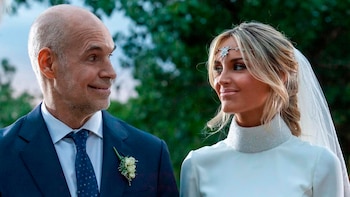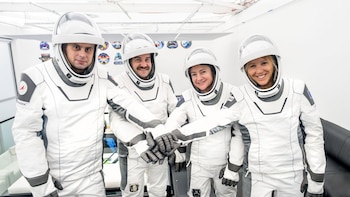The event was held at Tokyo Stadium, which will host all six days of action during the Games
CAPE TOWN, South Africa, April 23, 2021/ -- Organisers of the Tokyo 2020 Olympic Games held an operational test event for rugby sevens on Thursday, with 95 days to go before the first match of the tournament on 26 July.
The event was held at Tokyo Stadium, which will host all six days of action during the Games and was the site of the opening match of the hugely successful Rugby World Cup 2019.
Organisers from the Tokyo 2020 Organising Committee and the Japanese Rugby Football Union tested a variety of operational measures around exhibition matches featuring players from Japan’s men’s and women’s national sevens teams, albeit with no fans in attendance.
Match-day operations were simulated as they will be during the Olympics, complete with match officials, ground staff, the teams being announced on the stadium speakers and music being played after every try.
The event also provided organisers with another chance to test out COVID-19 countermeasures, including players wearing masks during the warm-up, all areas being frequently disinfected and the use of a small vehicle to return stray balls to the field of play.
The Japanese players on show are currently within their own training bubble and were kept separate from media and officials during the event.
The operational testing went off without a hitch, and Tokyo 2020 Deputy Executive Director Yasuo Mori was pleased with the outcome: "This is the first occasion where we have worked as one team at this rugby event. We have been able to share information and coordinate accordingly. This has been the biggest learning from this event."
Rugby sevens is a key priority for World Rugby and its Olympic debut at the Rio 2016 Games had an unmistakable effect on the sport, attracting an estimated 30 million new fans globally.
The sport is one of the most hotly anticipated events of the Tokyo Games, following the outstanding success of Rugby World Cup 2019 in Japan and the performance of the Japan men’s sevens team at Rio, where they beat the likes of New Zealand and France on the way to a fourth-placed finish.
"We are massively excited about being back in Japan," said World Rugby Chief Executive Alan Gilpin.
"It is a great opportunity for us. We know that a successful rugby sevens program in the Olympics is a great showcase for our sport, a great driver for future fans and players and is an inspirational pathway."
"We know Japan will be great hosts, no matter what the circumstances."
To ensure teams are as best prepared as possible for the Olympic Games, World Rugby is investing US$4 million into qualified unions’ sevens programmes and high-performance preparation events as the teams prepare for Tokyo.
The final two women’s and one men’s team will seal their place in Tokyo during the Repechage – the final Olympic qualification event – in Monaco on 19-20 June.
Distributed by APO Group on behalf of World Rugby.
SOURCE
World Rugby
25 Years at #1: Your best source of news about the Olympics is www.aroundtherings.com, for subscribers only
Últimas Noticias
Brigitte Henriques: “The important thing is that the women who are elected should be chosen for their ability, not because we are looking for modernization in terms of gender”
“When I was a girl I couldn’t find a club to play soccer in because most of them didn’t work with women,” Henriques tells Around the Rings during an in-depth interview in Crete, Greece.

The Hula Report: Winds of Change for ANOC in Crete
New leaders coming for peak Olympic group. Whether other candidates emerge in the months ahead, a contested election for the ANOC presidency will be a first for the organization.

Gilles Gilbert Gresenguet, presidential candidate for AFCNO: “We must take advantage of Paris 2024 to bring the Olympic Games back to French”
The elections take place November 18, and Abakar Djermah Aumi, president of the Chad Olympic Committee, is also aiming to win them.

USOPC announces 613-member 2020 U.S. Olympic Team

Roger Federer pulls out of Tokyo Olympics: "I am greatly disappointed"
(ATR) Federer cites "a setback with my knee" for the decision.




